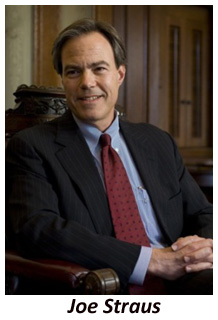Texas House to Study What More Should be Done on Worker Misclassification [1]
 Now that the state is moving forward with a targeted crackdown on the practice of worker misclassification, which some in the construction industry have called “a cancer,” [10] lawmakers are going to work through the summer to figure out what more they can do when they reconvene in a regular session in 2015.
Now that the state is moving forward with a targeted crackdown on the practice of worker misclassification, which some in the construction industry have called “a cancer,” [10] lawmakers are going to work through the summer to figure out what more they can do when they reconvene in a regular session in 2015.
As you may recall, the Texas Legislature in 2013 passed a bill to root out misclassification on public works projects. While many see that as a step in the right direction, it doesn't go nearly far enough to address the problem. As our readers well know, worker misclassification happens when a company pretends its employees are independent subcontractors when by law the workers qualify as employees and therefore should receive benefits and have their taxes deducted and matched. While there are many legitimate uses for subcontractors, the abuse happens when a company does this with the intent of skirting the law and avoiding payroll taxes.
Texas House Speaker Joe Straus [11], R-San Antonio, has now instructed House members to “examine the issue of misclassifying employees as independent contractors [and the effect this practice has] on workers, employers, income tax withholding, and the unemployment insurance system. Review current statutory deterrents, including those required by HB 2015 (83R), and make recommendations for changes if necessary.” House Bill 2015 [12], as noted, is the bill that was enacted this year, and only applies to public works.
There has been much frustration among certain lawmakers and industry leaders who want to see a broader fix for this problem. As Bob Price wrote recently [13] on the conservative blog Texas GOP Vote:
“Lawmakers have attempted to bring bills to the floor to stop the practice of companies that cheat workers and taxpayers and game the system to obtain an unfair competitive business advantage over companies who follow the law. These bills have repeatedly died in various committees because of pressure from a relatively few, but very powerful, home builders who make millions by cheating.”
Bob has also pointed out through his reporting that not only are taxpayers cheated by those who skirt the law, but Texas has a harder time enforcing child support payments when people are being paid under the table. Attorney General Candidate Barry Smitherman [14] said “The AG doesn't write the rules, but we must enforce the rules, so we must enforce it fairly. And as a side part of that, as you accurately pointed out, the state is cheated from revenue by companies that inaccurately characterize their employees and moms that are on child support and dads that are on child support are also cheated out of that revenue stream that they need.”
Smitherman is a conservative Republican, but this is in no way a partisan issue.
Texas AFL-CIO Legal Director Rick Levy [15] said that for too long, the state has looked the other way. “The first step in solving a problem is admitting it exists,” he said. “We are encouraged because the interim charge seems like an acknowledgement that payroll fraud is a growing practice that hurts workers and businesses that play by the rules and that something needs to be done.”

